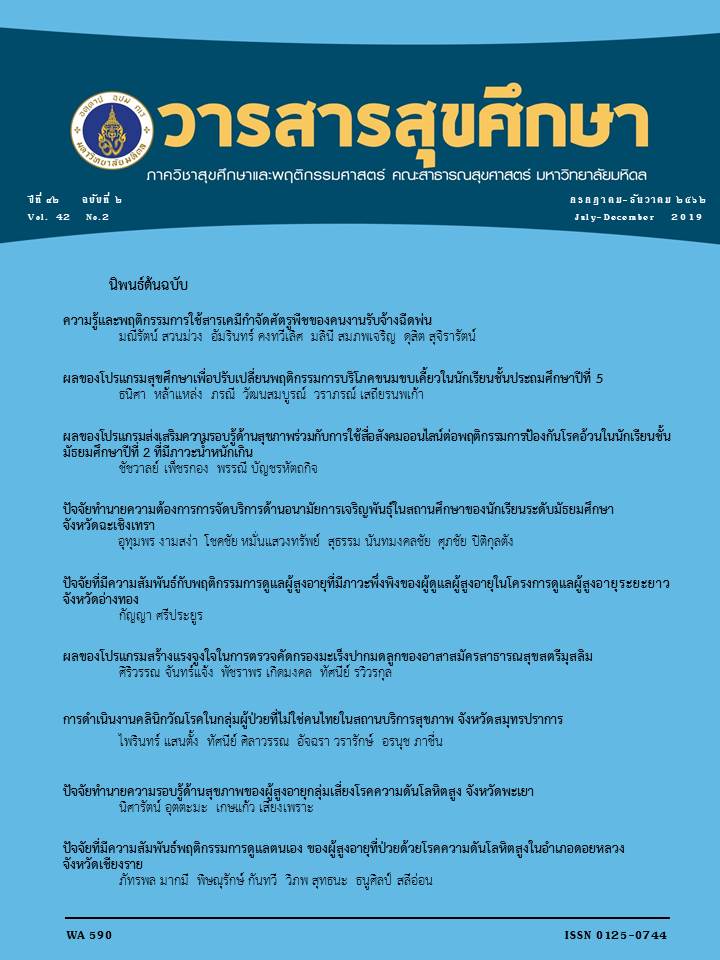Effects of Weight Reduction Program Applying the Social Cognitive Theory among Troops of Royal Thai Air Force at Donmuang Base
Main Article Content
Abstract
The prevalence of obesity has increased and is the leading cause of death in worldwide. The results of annual medical checkup of Royal Thai Air Force showed that male troops increased obesity, as well. The purpose of this quasi-experimental research was to examine the effects of weight reduction program applying the Social Cognitive Theory. The sample comprised 55 obese male Troops of Royal Thai Air Force at Donmuang Base, BMI 25 kg/m2 or over. The sample was divided into two groups, the experimental group (27 Troops) and the control group (28 Troops). The study was conducted over a period of 12 weeks. Activities of the program for the experimental group included group health education 4 times and environmental management to promote weight reduction through participatory approach 4 times. Data were collected by self-administered questionnaire at three phase, pre- intervention phase, post-intervention phase on the 8th week and follow up phase on the 12th week. Statistics analysis were performed using descriptive statistics and inferential statistics, Chi-square test, Independent t-test, Paired t- test, and One-way ANOVA.
The results revealed that after the experimentation, the experimental group and the comparison group were not significantly (p>0.05) perceived on self-efficacy and outcome expectation of dietary behavior and exercise, dietary behavior for weight reduction, and BMI. For experimental group, it was not found significantly (p>0.05) of perceived on self-efficacy and outcome expectation of dietary behavior and exercise at pre and post - periods, and BMI at all three time-periods, except dietary behavior for weight reduction at pre and post - periods (p=0.009). Besides, the experimental group had significantly met a moderate to high intensity exercise than the comparison group at follow up phase on the 12th week, 92.6% vs 17.9% (p<0.001). Therefore, the implication of the theoretical based program for weight reduction among Troops of Royal Thai Air Force and other army into the routine work should consider the army contexts, particular Aimed Forces in relation to personnel capacity.

